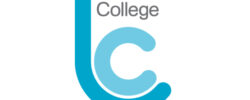Course Overview
T level courses are the latest programme of study available at level 3, making them the same as A levels. There is a large difference, however. There is a significant amount of work placement as part of a T level. This is something that the Universities our students have gone on to really appreciate.
For most of the T level, you work in supportive classrooms to understand childcare and education’s core parts. This prepares you for your 90 days placement in childcare which takes place across the first and second year. In a role that works to your strengths and reflects your interests, you apply all the knowledge of year one to the real world.
You will take part in activities that help you to develop your personal skills, such as building your character and confidence. This will help you to live well and move into your chosen career.
What You'll Learn
Year 1
In year one, there is a lot to learn. Covering the 12 core elements of education and childcare, you build a solid foundation. This year of in-college lessons, workshops and sessions with expert tutors are truly comprehensive. Added to this will be your first work placement. This will be in a primary school. Back in the classroom you will look at;
1. An overview of childcare and education from ages 0 to 19, including childcare, school and post-16. An introduction to education and childcare work, looking at roles, responsibilities and career opportunities.
2. Child development from birth to 19, exploring early-years personal development, language and how carers can support children through transitions and significant life events.
3. Understanding the early year’s foundation framework (EYFF), the national curriculum, how to support children and young people’s education and factors that affect this.
4. Safeguarding, health and safety and wellbeing – all the statutory guidance and legal requirements as well as the importance of children and young people’s emotional health and wellbeing.
5. How children and young people’s development affects verbal and non-verbal behaviour, and the strategies you can use to support behavioural development.
6. An overview of national test assessments and assessors and why it’s important to report on children and young people’s progress.
7. The basic principles of current equality and diversity practice and why we should promote diversity, equality and inclusion.
8. Provision for children and young people with disabilities and special educational needs – think professionals and organisations involved with SEND, different models of disability, empowering children and young people and removing barriers.
9. A range of aspects and strategies to support children and young people when English is an additional language.
10. The importance of parents, families and carers and how to work with and support them.
11. How to work collaboratively and establish effective relationships with agencies, services and professionals who support children, families and carers.
12. The importance of continuing professional development, with models of reflection and feedback.
Year 2
The second year is looking at the occupation specialism. This is where all the knowledge and theories of year one finds their place in the real world. You, your classmates and your tutors examine all the ways you can support the children as they learn about themselves and the world around them.
You explore ways to develop and build relationships with children, and how to plan, provide and review care, play and educational opportunities so each child can progress and build the best future you can. As with year one, there is significant amount of time in a real world work placement. This year you will be in a day nursery dealing with children from birth to four years old.
You will also begin your industry placement this year, where you will be working towards five key learning outcomes:
1. Supporting and promoting children’s play, development, and early education
2. Developing relationships with children to facilitate their development
3. Planning, providing and reviewing care, play, and educational opportunities to enable children to progress
4. Safeguarding and promoting the health, safety, and wellbeing of children
5. Working in partnership with colleagues, parents, carers, and other professionals to support children’s development.
During your placement in a nursery or school, you build your confidence with real-life experience and you work through your employer-set project to show you’ve grasped the intricacies of this career path.
Safeguarding and promoting the health, safety and wellbeing of children is vital, and you also learn to work effectively with colleagues, parents, carers and other professionals in a child’s life for 360 care and attention.
Entry Requirements
Standard entry to this course requires 5 GCSEs including both English and maths at grade 4 or above or Functional Skills in both English and maths at Level 2, plus three other GCSE’s at grade 4 or above. Additionally, this course requires one reference (usually from your school) and it is desirable that you can demonstrate a minimum of 90% attendance at your last place of study.
How you will be assessed
There are several formal assessments during the two years: exams set by the awarding body in year one plus the employer set project. In year two you can expect controlled assessments, practical summary assignments and assessments of your actual skills in the workplace. The workplace assessments will start quite soon into year two as the first part goes towards your license to practice as an early years practitioner.
Together, the assessments generate an overall grade of pass, merit, distinction or distinction*.
At the end of your T level, you receive a nationally recognised certificate with a clear breakdown of your achievements. The T level can be worth up to 168 UCAS points which is the same as 3 A-levels at A* grade. So it is worth revising hard and showing how good you are in placement. The qualification can be used to get onto Primary Education with QTS degree courses at various Universities.
Course Fees
Tuition fees
Tuition Fees (16-18): £0.00
Additional Costs
There are no tuition fees to study a T Level if you start before you are 19 years old but there will be £30 material costs that will need to be paid at the start of the course.
This is a professional programme and all settings expect staff to wear a uniform. This is bought online from our suppliers. Further details on uniform requirements are available from the workplace coordinator or programme lead during enrolments.
You will need to have an Enhanced Disclosure and Barring Service (DBS) check to work with children and vulnerable adults, to ensure that you do not have a criminal record.
Material Fees
£30.00
Disclaimer
If the course is longer than one year the total fees are for the first year only and further fees may apply in future years. All fees are based on a ‘home’ learner status. Please contact us for information on overseas fees.
For more information, please see our course fee disclaimers page.
Course and Career progression
From here, your path might take you into nursery work, childminding or into a role as a special educational needs teaching assistant. You could also consider university and step into qualified teaching programmes. With a T level in early years education and childcare, you could even consider working abroad.
Students can also use this T Level to do a related higher level of apprenticeship or go on to do a relevant degree course.
Have a chat with our independent careers advisors to work out your next step. They have all the information, advice and guidance you need to kickstart your career.
What Happens Next
Apply online via the College website, or if your school uses the Positive Steps @16 (PS16) application system please apply through this and speak to your careers advisor if you are unsure. You will need details of your qualifications, a reference, and a personal statement to complete your application. Once your application has been successfully processed, you will be sent a conditional offer and be invited to an interview at the College to meet key staff, learn more about your chosen course of study and tour the facilities. You will then need to confirm your acceptance of the course offered to you.















